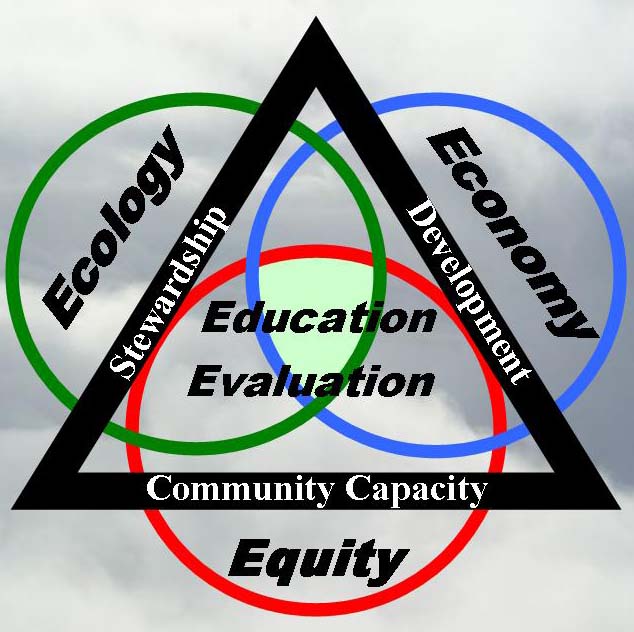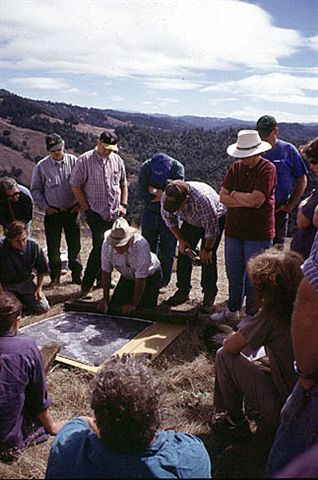Community
is a group of people with shared interests, perceptions,
and values. In our contemporary world broad historical trends,
political and community structures, and the texture of daily
life are all shaped by research, science, and technology
in more profound and subtle ways than most people realize.
The effects of science and technology extend from relatively
obvious environmental repercussions, such as pollution, to
critical social and political consequences, such as job insecurity,
community atrophy, and ultimately a dysfunctional democracy.
Science has solutions to offer on urgent issues such as energy,
fresh water, food production, and health, but new approaches
are needed to more effectively influence policy-making and
involve all stakeholders in citizen
science. In order to anticipate and avert the impacts
of these issues, it is essential to interject community perspectives
into science and technology decisions. Five E's Unlimited has
adapted practical ways to enable people from all walks of
life to
contribute to science and technology
choices, thereby improving people’s well-being and
the well-being of their communities. But this requires emphasizing
the ways of doing science as much as the means. The increasing
importance of science in today's world calls for far greater
interaction among all stakeholders and for a truly global
perspective in research.
Community-based
research, within the context of citizen
science, differs fundamentally from mainstream
research in being coupled relatively tightly with community
groups that are eager to know the research results
and to use them in practical efforts to achieve constructive
social change. Community-based research is not only
usable, it is generally used and, more than that, used
to good effect. Community-based research also often
produces unanticipated and far-reaching ancillary results,
including new social relationships and trust, as well
as heightened social efficacy. It may thus provide
one constructive response to the growing concern that
American civil society is in crisis and unraveling.
Promoting
community-based research, by making empowerment through
mutual learning universally accessible, can better
direct our extraordinary capabilities toward our most
urgent social and environmental needs. We can help
alleviate suffering, revitalize democracy and community
life, and bequeath future generations a world better
than we found it. But a new social contract of science
will be needed that encourages greater interaction
in the conduct of citizen science (the public way of
knowing coupled with the expert way of knowing). This
greater interaction requires improved communication
of science to the public and higher levels of scientific
literacy in order for people to influence how science
and technology affect their lives. Science has to meet
the real needs of real people, respecting individual
rights and empowering communities, to win public and
political support. By building models for doing science
in a more interactive and inclusive way, we can make
active partners of all the parties involved and ensure
the full participation of all potential stakeholders.
As
science encroaches more closely on heavily value-laden
issues, members of the public are claiming a stronger
role in both the regulation of science and the shaping
of the research agenda. Therefore, we should and can
adopt a much more inclusive approach that engages many
different sectors (communities) assertively in community-based
research that emphasizes the meaning and usefulness
of science. We must try to find common ground through
open, rational discourse. And if the business sector
takes note of the potential benefits of a new relationship
between science and society, then public and private
interests would converge, generating a force for progress
powerful enough to meet the challenges of today and
tomorrow.
|


